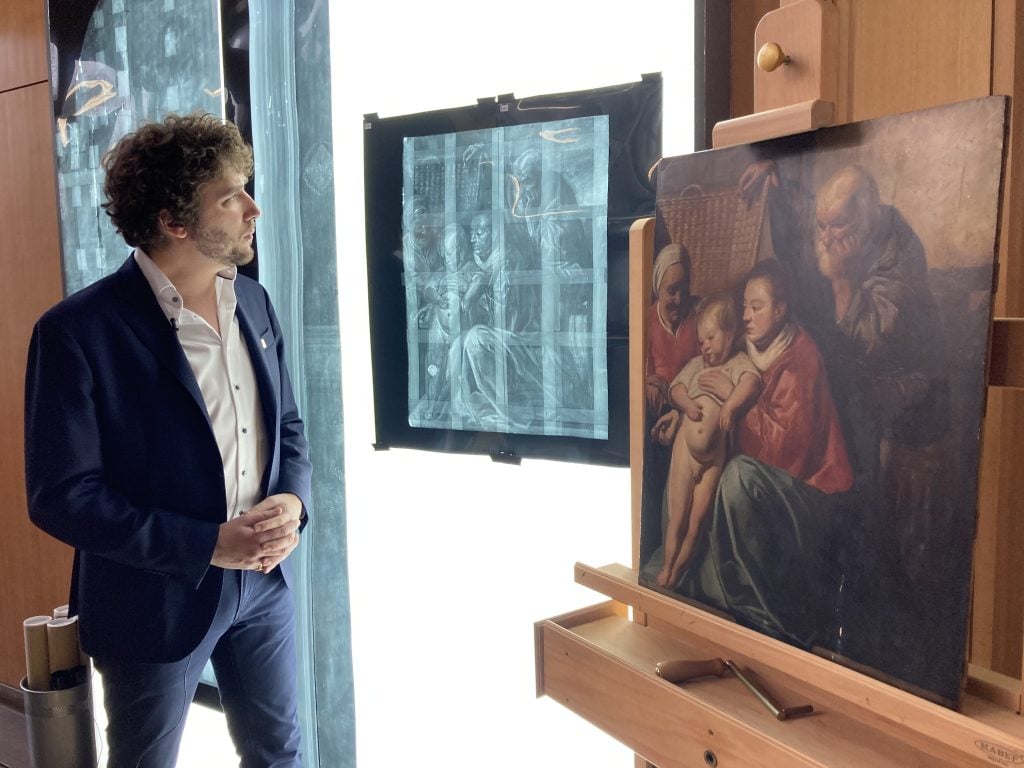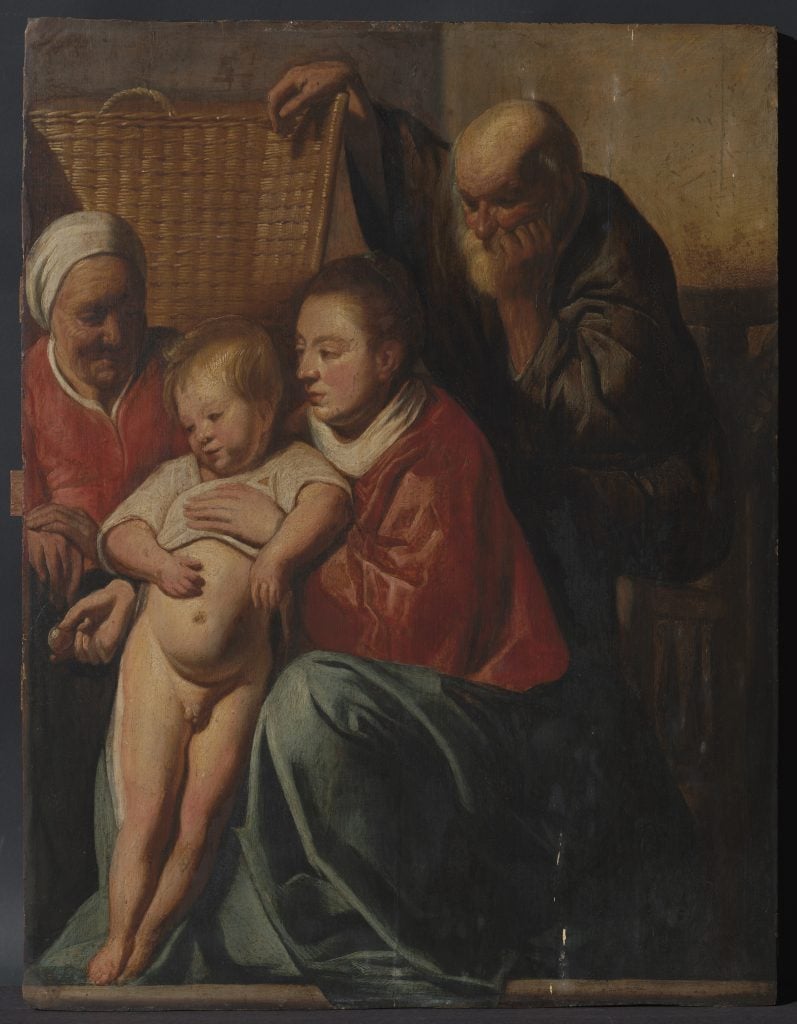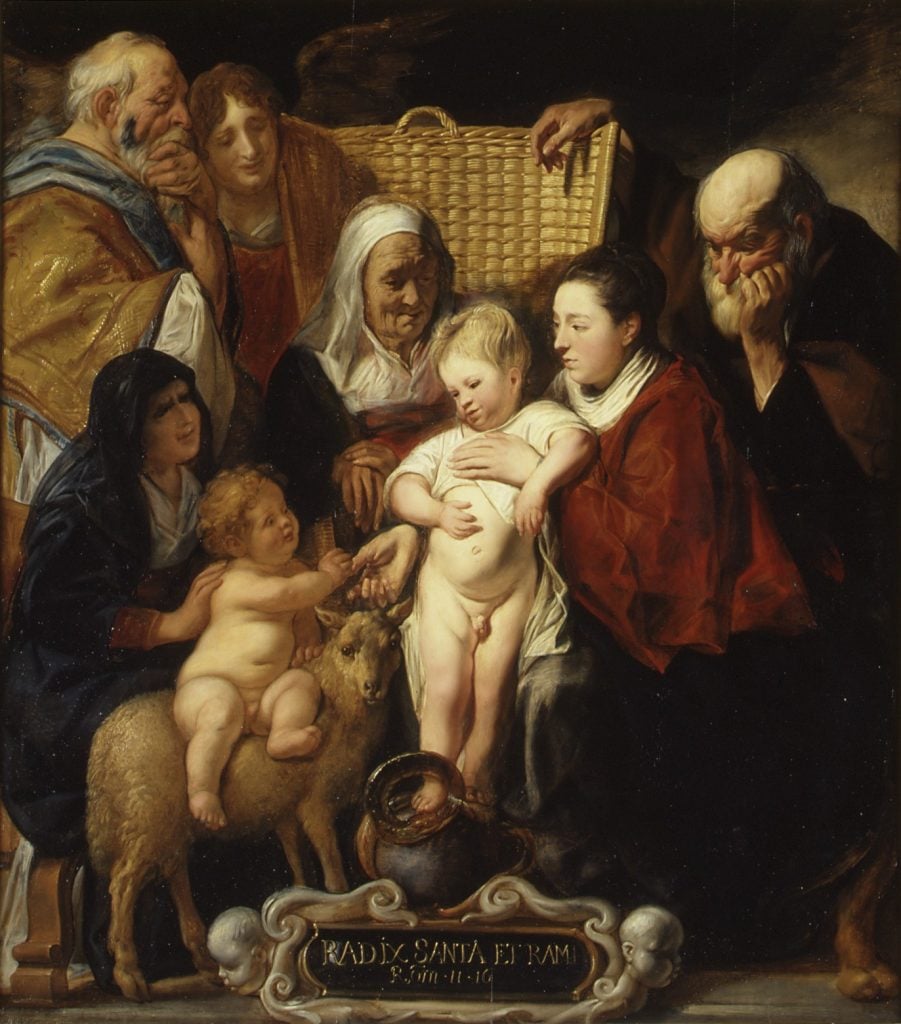Art World
Art Historians Have Discovered an Exceptional Work by a Famed Flemish Old Master Hiding in Plain Sight in a Brussels Town Hall
City officials had long assumed the 16th-century panel was a copy.

City officials had long assumed the 16th-century panel was a copy.

Naomi Rea

Art historians in Belgium have uncovered a museum-quality work by the Flemish Baroque master Jacob (Jacques) Jordaens hanging in a town hall in Brussels.
The 400-year-old work, which was found during an inventory of the city’s public art collection, had been hiding in plain sight in an office for more than half a century.
Authorities then brought in historians from the Royal Institute of Artistic Heritage to catalogue the collection, which included examining all 800 works in the Saint-Gilles town hall. The 16th-century panel had been hanging in the office of an urban-planning official for nearly 60 years, and city workers had long assumed it was a copy.

Jacob Jordaens’s The Holy Family (1617–18), found in Belgium. Image courtesy Musées royaux des Beaux-Arts de Belgique.
Experts from the Royal Museums of Fine Arts of Belgium and the Jordaens Van Dyck Panel Paintings Project worked with the Royal Institute for a year to authenticate the work, which depicts the baby Jesus with Joseph, Mary, and her mother, Saint Anne. It has now been attributed fully to Jacob Jordaens and is dated to around 1617–18, making it the oldest-known version of his Holy Family, which he painted on several occasions.
“This discovery really makes an impression,” the director general of the Royal Institute, Hilde de Clercq, said in a statement, adding that it underlines the value of conducting inventories of public heritage.
Subsequent versions of the composition are held in some of the world’s most important museums: the Metropolitan Museum of Art in New York, the Hermitage in Saint Petersburg, and the Alte Pinakothek in Munich.

Another version of Jacob Jordaens’s The Holy Family, in the collection of the Metropolitan Museum of Art. Image courtesy Musées royaux des Beaux-Arts de Belgique.
Art historian Constantin Pion said he felt an “extraordinary moment of emotion” upon realizing the importance of the painting, which is significant in several ways.
Analysis of the wood panel has revealed that it was made from the same tree used to create several panels used by another Baroque master, Anthony van Dyck. This lends credence to the theory that the two painters were active in Peter Paul Rubens’s studio at the same time.
The varnish on the Brussels work has yellowed with age, and has several dark spots from previous restoration attempts. It will now be fully restored and treated to prevent further cracks and paint loss.
The work will go on view at the Royal Museums of Fine Arts of Belgium at the end of 2021 as the centerpiece of the museum’s Jordaens collection.
Michel Draguet, the director general of the Royal Museums, said in a statement that it will be a “great moment of happiness” to show the “missing milestone” of the Flemish Old Master’s oeuvre.